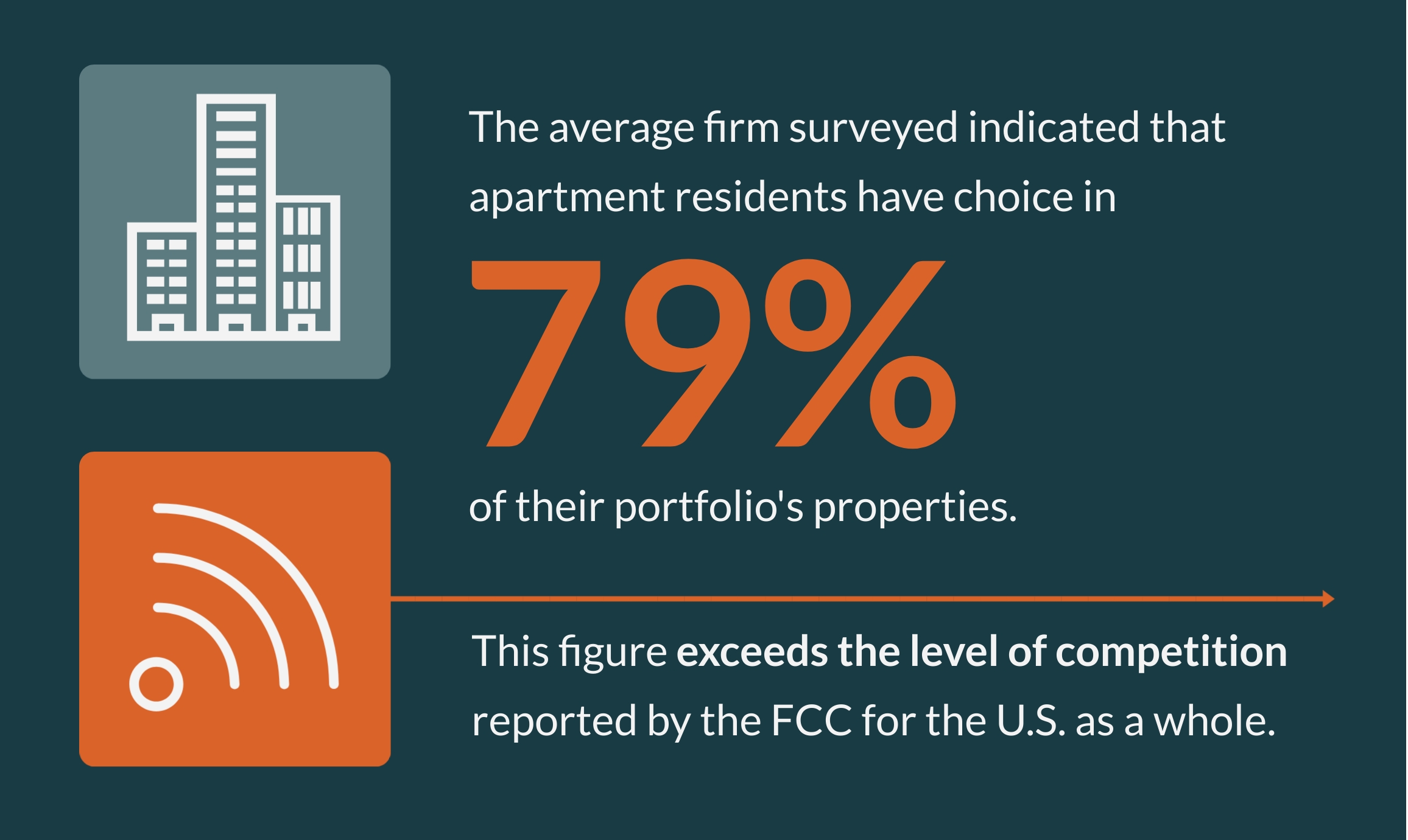NMHC collects industry data and case studies to bolster comments filed in response to FCC review of multifamily broadband.

By Kevin Donnelly, Vice President, Government Affairs, Technology and Strategic Initiatives, NMHC
Kevin Donnelly is Vice President, Government Affairs, Technology and Strategic Initiatives, with responsibility for representing the interests of the multifamily industry before Congress and federal agencies. Contact Kevin at kdonnelly@nmhc.org.
NMHC led a coalition of real estate stakeholders on October 20 in filing comments at the Federal Communications Commission (FCC) in response to a new proceeding aimed at refreshing the record on broadband competition and access in the multifamily and commercial real estate sectors.
NMHC’s filing follows similar efforts in 2017 and 2019, where NMHC led the real estate industry in providing detailed information to the FCC. Over the past several years, NMHC has engaged in numerous rounds of meetings with FCC Commissioners and staff to highlight the significant and costly work that property owners, developers and managers do on a daily basis to ensure high-speed and reliable connectivity for renters as well as commercial and retail tenants.
New NMHC Data Suggests Multifamily Broadband Market Is Working As Intended
It is clear through the questions raised once again in this new proceeding that the Commission is asking for information on the current state of the market in the multi-tenant space with an eye towards limiting or preventing revenue/cost share, wiring, marketing and access agreements from being entered into, limit property owners’ ability to control access to their properties and ultimately shift broadband infrastructure costs to property owners.

Through our filed comments, NMHC responded strongly by providing new survey data that shows the broadband market in the multifamily space is working as intended with strong competition and access to high-quality, reliable broadband service for residents.
The multifamily firms that responded to the survey collectively own 978,963 units and manage 770,640 units. Similar to previous findings, the average firm in the survey indicated that apartment residents have choice in 79 percent of their portfolio's properties, which exceeds the level of competition reported by the FCC for the United States as a whole. Further, the survey demonstrated that wiring, marketing and access agreements do not inhibit competition and in fact help it, with residents often having a choice in providers even when these agreements are in place.
Making the Case: NMHC Uses Member Case Studies to Help Tell the Industry’s Story
NMHC’s comments also included detailed declarations submitted by industry leaders—AvalonBay, Continental, Mill Creek, AMLI, E&S Ring, GID, Essex as well as several consultants—that build upon the survey data and provide real world examples of the tremendous work and cost borne by multifamily developers, owners and operators in building out and maintaining communications infrastructure to ensure their residents have access to reliable, high-quality and high-speed broadband and an overall seamless connectivity experience.
In sum, NMHC, multifamily owners and operators and our coalition partners made the following points in the filing:
- All sectors of the multi-tenant real estate industry – apartment, office, and retail – work diligently and effectively to ensure that their residents and office and retail tenants have access to high-quality, reliable broadband services.
- Existing arrangements in the apartment industry have strong consumer and market benefits, including that:
- they permit and indeed encourage access to competitive providers.
- they provide residents access to broadband speeds that are often higher than those available in nearby single-family housing;
- they establish service level standards enforceable by the owner to ensure that the provider delivers the promised quality of service to residents; and
- They ensure that the infrastructure inside buildings is regularly upgraded so that residents obtain reliable, high quality service.
- Mandatory Access statutes/ordinances do not promote deployment and simply allow for providers to cherry-pick opportunities in high-end properties.
- The proposals under consideration would do nothing to address deployment where it is most needed – improving the quality of service for low-income Americans.
- The FCC lacks the legal authority to adopt the proposed measures and should refrain from attempting to adopt any further regulation affecting broadband deployment in the multi-tenant market.
Access NMHC’s full comments here.
NMHC and its coalition partners are currently reviewing other comments that have been filed in the proceeding and have an opportunity to file additional comments in early November during the reply comment period to again make the industry’s case, provide additional data and highlight the work of the industry in ensuring superior connectivity for apartment residents.
NMHC will continue to encourage the FCC to uphold the existing partnership model and continue to look for ways to bridge the digital divide — both urban and rural — where providers cannot or choose not to serve areas and some rental properties because of the infrastructure investment needed.



